Are you curious about kombu vs kelp? Look no further!
This article will dive into the flavor profile, nutritional composition, culinary uses, health benefits, and sustainability of these seaweed varieties.


Discover how kombu vs kelp differ in taste, their unique nutritional properties, and how they can be used in various dishes.
Learn about the environmental impact of harvesting these seaweeds and make informed choices for your next culinary adventure.
Key Takeaways
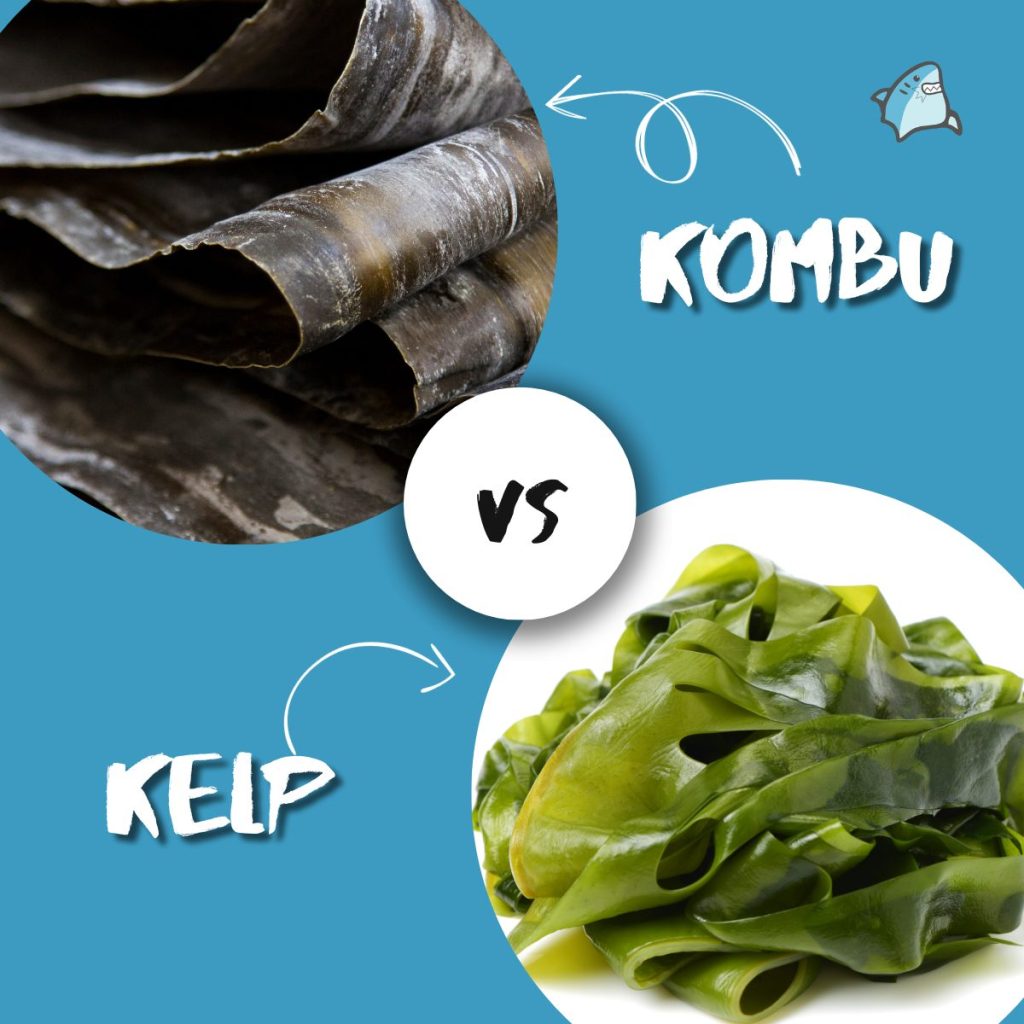
- Kombu has a rich and savory taste with a unique umami flavor, while kelp has a milder flavor that is often described as delicate and refreshing.
- Both kombu and kelp are low in calories and excellent sources of dietary fiber.
- Kombu is rich in calcium and iron, while kelp is abundant in iodine, potassium, calcium, and iron.
- Both seaweeds have potential health benefits, such as supporting thyroid health, providing vitamins and minerals, and having anti-inflammatory properties.
Kombu vs Kelp: Flavor Profile
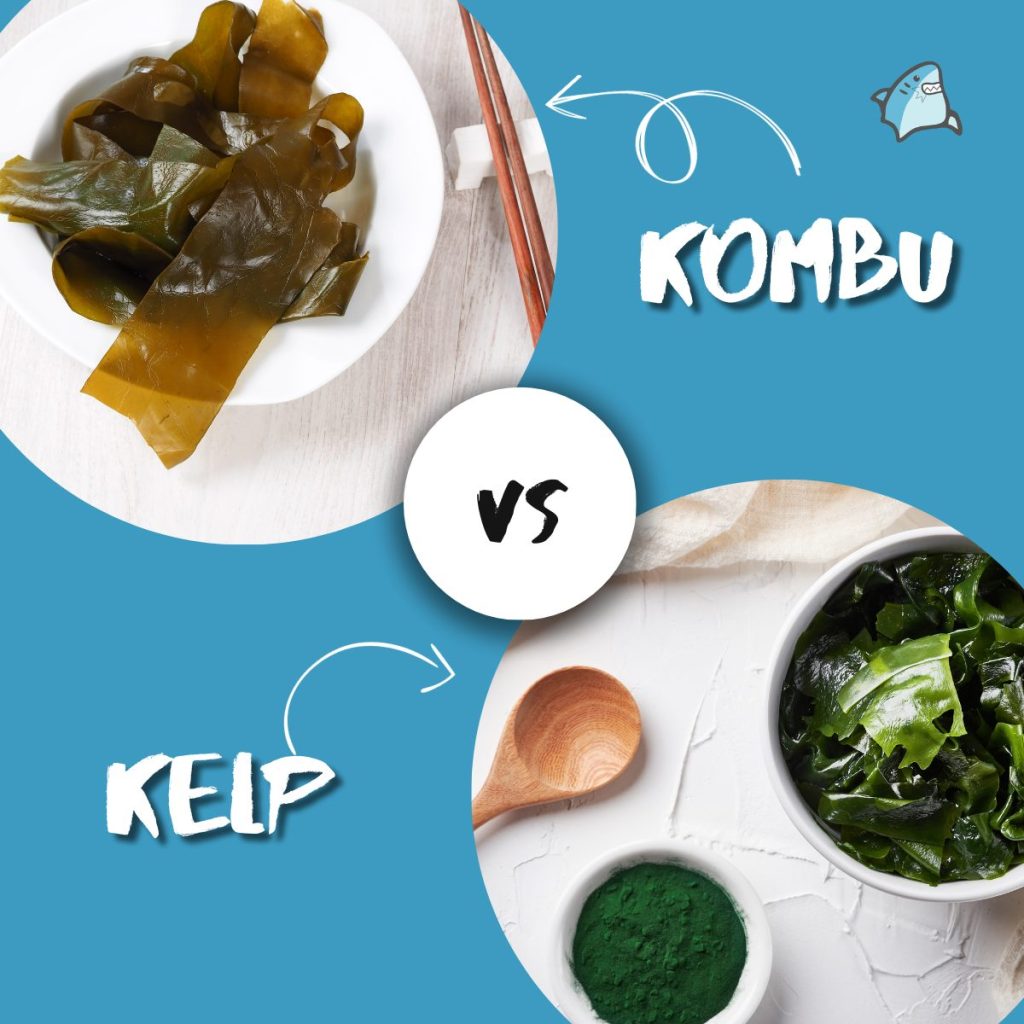
When it comes to flavor, kombu and kelp offer distinct profiles.
Kombu, a type of seaweed commonly used in Japanese cuisine, has a rich and savory taste. It has a unique umami flavor that adds depth and complexity to dishes. Kombu also has a slightly sweet and briny undertone, which enhances the overall taste experience.
On the other hand, Kelp, another type of seaweed found in various cuisines worldwide, has a milder flavor than Kombu. It has a subtle oceanic taste with hints of sweetness and a slight mineral-like quality. Kelp’s flavor is often described as delicate and refreshing, making it a popular addition to salads and seafood dishes.
Whether you prefer kombu’s robustness or kelp’s subtlety, both seaweeds offer a unique and enjoyable flavor experience.
Kombu vs Kelp: Nutritional Composition
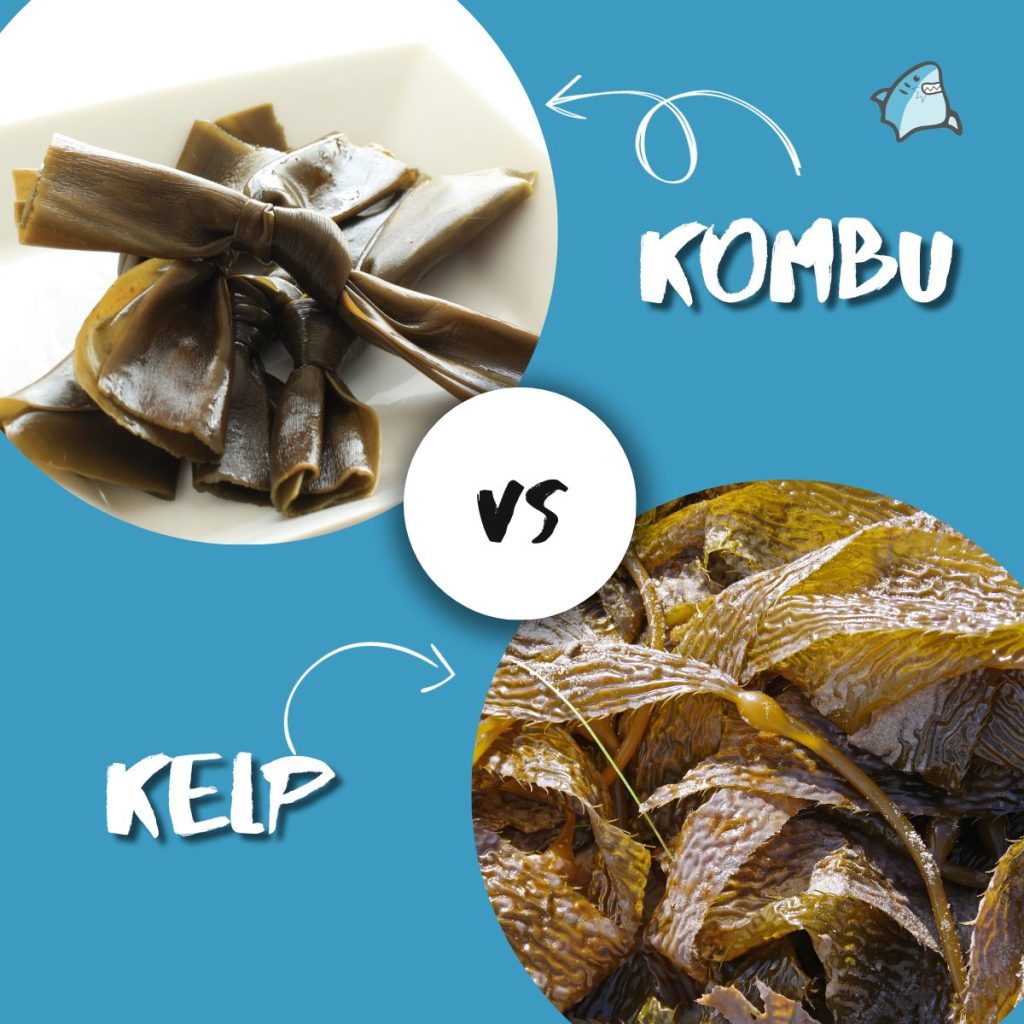
Let’s delve into their nutritional composition to continue our comparison of kombu vs kelp. Understanding the nutritional content of these seaweeds is essential for making informed dietary choices.
Here are three key aspects to consider:
1. Macronutrients
Kombu and Kelp are low in calories, making them suitable for those watching their weight. They’re also excellent dietary fiber sources, aiding digestion and promoting a healthy gut.


2. Micronutrients
These seaweeds are rich in essential minerals such as iodine, potassium, calcium, and iron. Iodine, especially in Kelp, is crucial for maintaining thyroid health and regulating metabolism. Calcium and iron in higher amounts in kombu contribute to bone strength and red blood cell production.
3. Antioxidants
Kombu and Kelp contain various antioxidants, including vitamins C and E, which help protect the body against harmful free radicals and oxidative stress.
Kombu vs Kelp: Culinary Uses
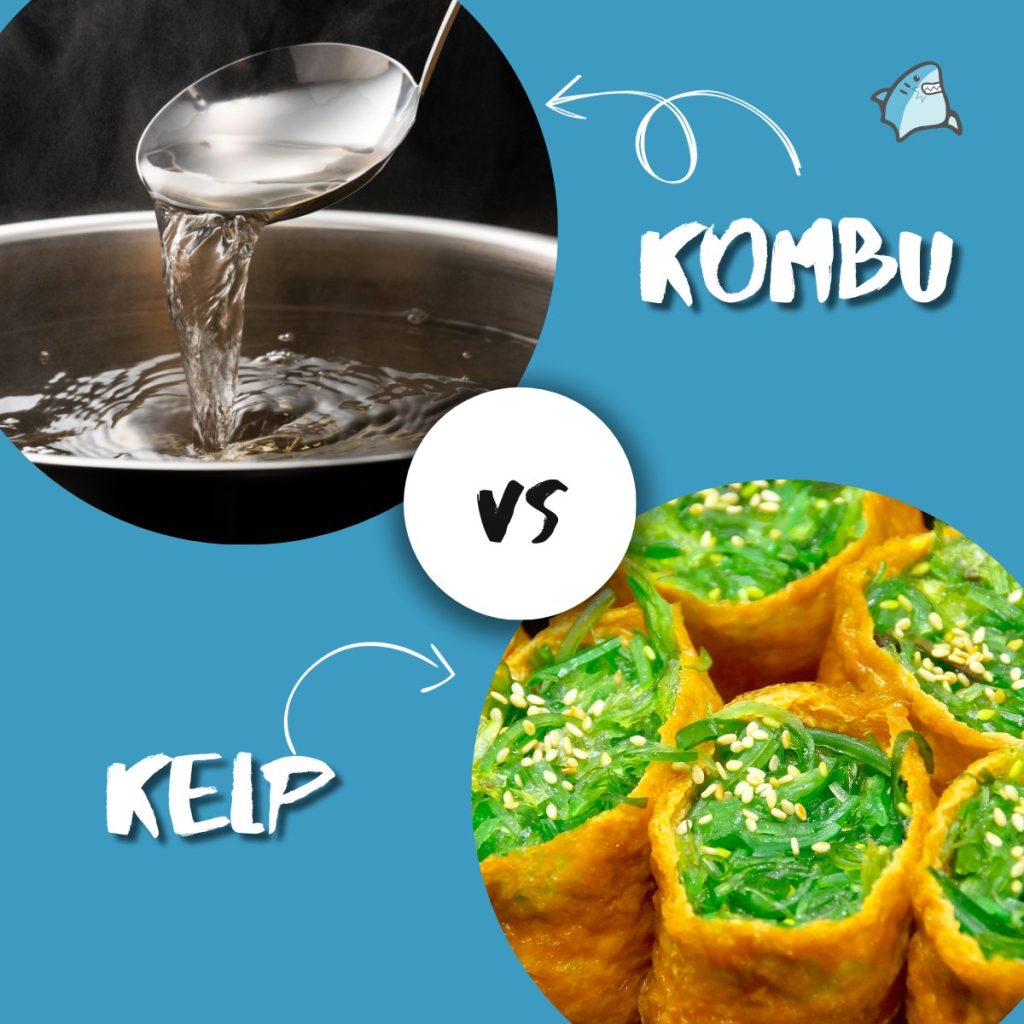
You can incorporate kombu and kelp into various dishes to enhance flavor and add a nutritious element.
With its strong umami flavor, kombu is commonly used in Japanese cuisine to make dashi, a broth that forms the base of many dishes. It can also be added to stews, soups, and sauces to impart its unique taste. Kombu can tenderize beans and lentils, making them easier to digest.
On the other hand, kelp is often used in salads, as its mild, slightly sweet flavor pairs well with fresh vegetables. It can also be used as a wrap for sushi, adding a subtle oceanic taste. Additionally, kelp can be used to make kelp noodles, a gluten-free alternative to traditional pasta.
The versatility of both kombu and kelp makes them valuable ingredients in various culinary creations.
Kombu vs Kelp: Health Benefits
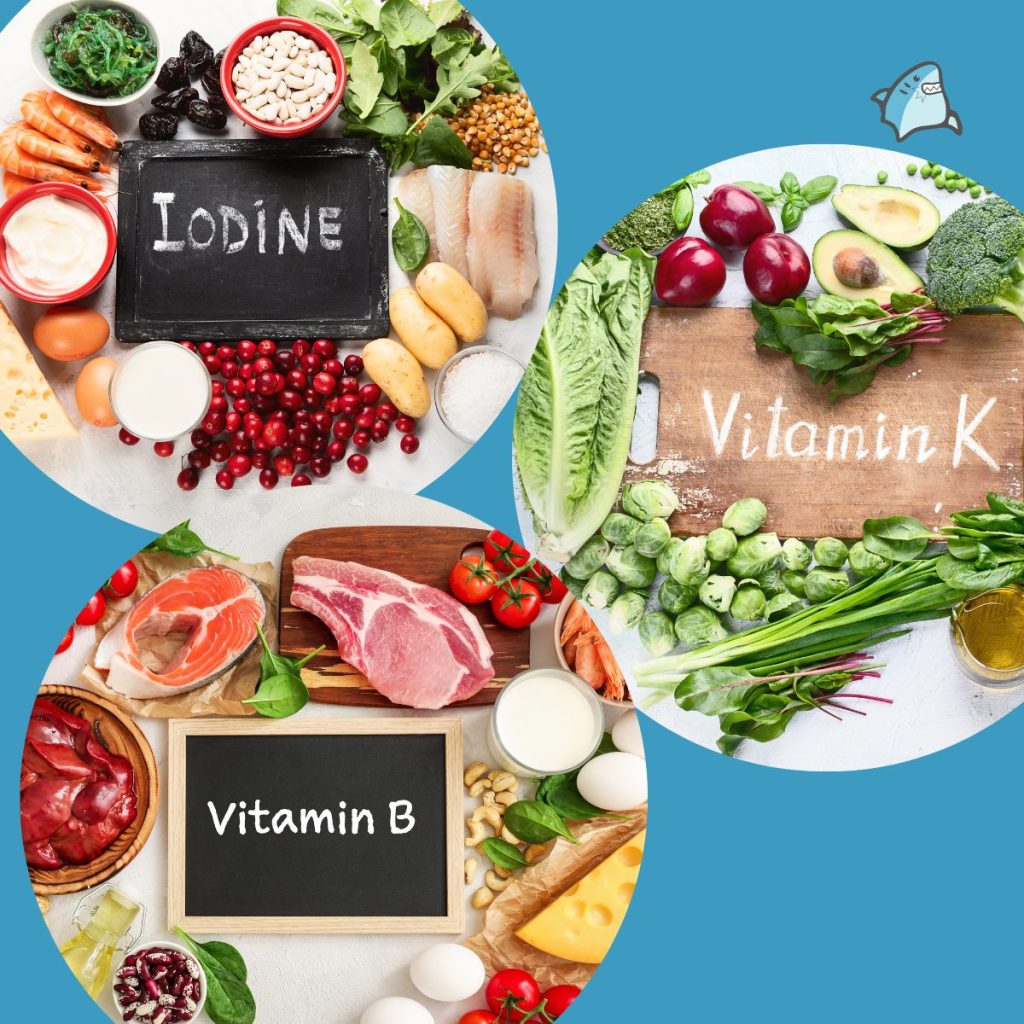
Now, let’s explore the health benefits of both kombu vs kelp, as they offer valuable nutrients and potential wellness advantages.
Rich in iodine
Kombu and Kelp are excellent sources of iodine, a mineral essential for properly functioning the thyroid gland. Adequate iodine intake helps regulate metabolism and hormone synthesis, promoting overall health.
High in vitamins and minerals
Kombu and Kelp are packed with essential vitamins and minerals like vitamin K, B vitamins, calcium, iron, and magnesium. These nutrients contribute to bone health, blood clotting, and energy production and support various bodily functions.





Konnichiwa! (Hello!) I'm Pat Tokuyama, a Japanese tofu cookbook author, who travels for music, food, and adventure. If you like Japanese tea, checkout some of the newestorganic japanese tea, matcha bowls and noren and more!
** Curious about the Plant Based Japanese Cooking Club? ** Learn more here!
Potential anti-inflammatory properties
Studies suggest that the bioactive compounds in kombu and kelp, such as fucoidan, may possess anti-inflammatory properties. These compounds have shown promising potential in reducing inflammation and oxidative stress linked to various chronic diseases.
Including Kombu and Kelp in your diet can provide various health benefits, supporting overall well-being and promoting optimal health.
Kombu vs Kelp: Sustainability and Environmental Impact

Kombu and kelp’s sustainability and environmental impact can be assessed by evaluating their cultivation and harvesting practices.
Both Kombu and Kelp are cultivated in the ocean and harvested in a sustainable manner. Kelp cultivation involves using ropes or buoys to grow the plants, which helps minimize damage to the ocean floor.
Kombu is typically harvested by hand, ensuring minimal disruption to the marine ecosystem. Additionally, both kombu and kelp have a positive environmental impact as they absorb excess nutrients from the water, helping to improve water quality and prevent harmful algal blooms.
Furthermore, kombu and kelp grow quickly and require few resources to cultivate, making them highly sustainable options for food production.




Konnichiwa! (Hello!) I'm Pat Tokuyama, a Japanese tofu cookbook author, who travels for music, food, and adventure. If you like Japanese tea, checkout some of the newestorganic japanese tea, matcha bowls and noren and more!
** Curious about the Plant Based Japanese Cooking Club? ** Learn more here!